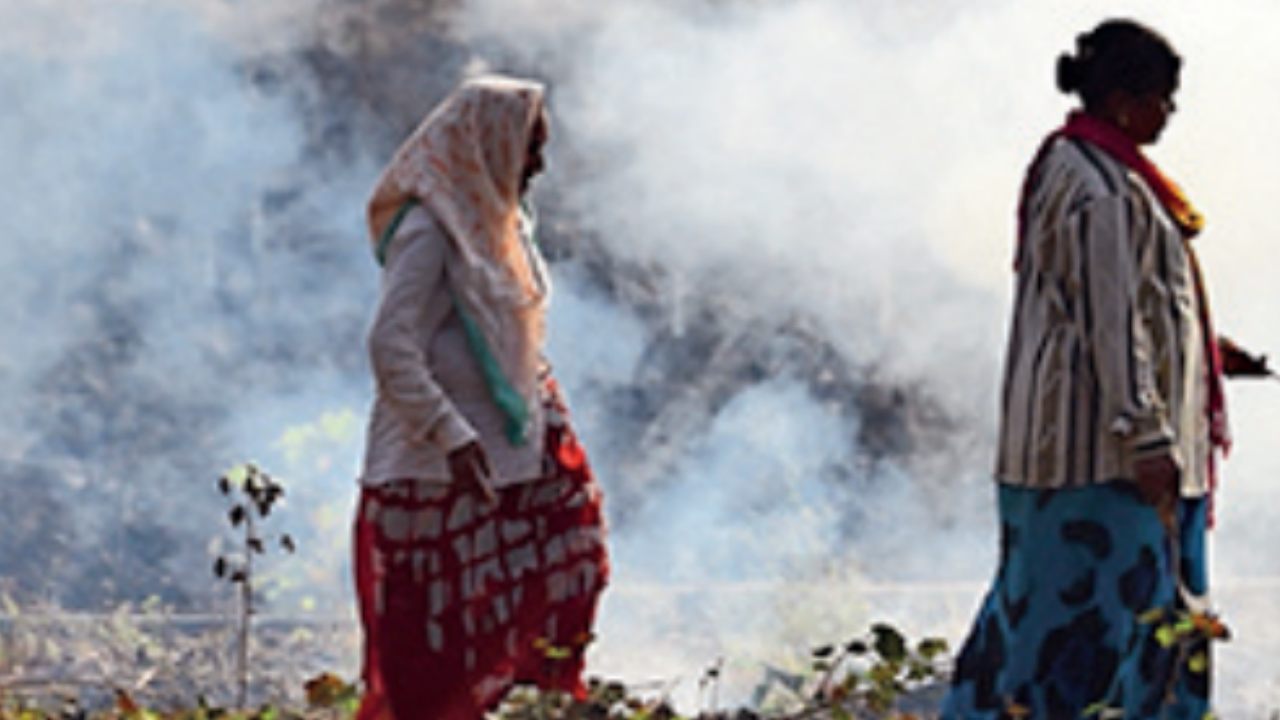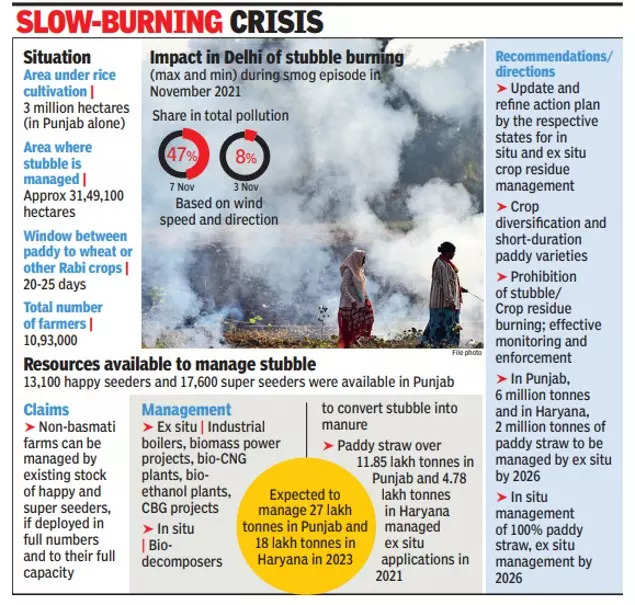
NEW DELHI: The proportion of pollutants from harvest residue burning in Delhi's air last year varied from 4% to 48% on different days. Given the farm fires' big load on air quality, the Commission on Air Quality Management's new policy desires to have harvest stubble taken care of by December 31, 2026.
The policy directs the governments of Punjab and Haryana, along with Delhi, to ensure in-situ and ex-situ management of the stubble and to initiate schemes to diversify crops other than paddy, promote short duration paddy varieties and prevent straw burning. In-situ management would have the post-harvest stubbled managed within the field through mulching or decomposition employing bio-decomposers. Ex-situ management would require the stubble to be baled and used as fuel in kilns and powerplants or to make biofuels.

However, with no unified plan, such a target relies largely on the capabilities of the different state governments and other agencies that must provide resources to over one million paddy cultivators in Punjab alone.
The policy also held the Punjab Preservation of Sub Soil Water Act, 2009, and The Haryana Preservation of Sub Soil Water Act, 2009, responsible for the delayed paddy harvest season. These Acts decree a timeline for crop planting. As Anumita Roy Chowdhury of Centre for Science and Environment explained, "The governments have fixed a date before which paddy cannot be sown in order to preserve the groundwater. Paddy sowing is put off till the monsoon." But delayed planting and harvesting of rice result in a small window for the next crop, shorter than the time a farmer needs to ready the field for wheat planting and forcing him to resort to burning of rice stubble.
CAQM wants farmers to cultivate alternative crops that don't necessitate stubble burning and to plant short duration, early maturing varieties of rice like PUSA 44 or Basmati varieties that had soft paddy usable as fodder. It also recommends animal husbandry in Delhi Lal-Dora areas to consume crop residues and paper industry to use agricultural waste.
The new policy also underlines teh importance of a strong biomass supply chain to scale up ex-situ crop residue management and, accordingly, recommends that the railways shift crop residue from Punjab and Haryana to other states. The policy also recommends that till paddy removal remains unmanaged, it must be ensured that no stubble is burnt between 8am and 2pm from September to February every year.
Roy Chowdhury said, "On the ground, we understand that there are challenges.
So, each intervention requires a response. For instance, a good roster system is needed for bio-decomposers and tools to reach the small farmers. The ground level issues need to be addressed by the governments for these recommendations to work. And there must be accountability."







